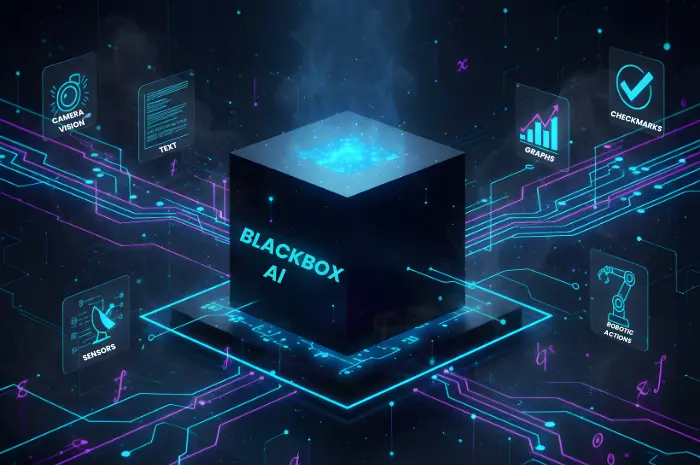
In today’s rapidly evolving technological landscape, Artificial Intelligence (AI) has emerged as a game-changer in various industries. One area where AI has made significant strides is in quality assurance. By leveraging AI-powered tools and techniques, businesses can automate and streamline their quality assurance processes, leading to improved efficiency, accuracy, and overall product or service quality. In this article, we will explore the applications of AI in quality assurance, discuss the benefits it offers to businesses, and examine the challenges that come with its implementation.
Benefits of Using AI for Quality Assurance
Automation
One of the most significant advantages of AI in quality assurance is automation. Traditionally, quality assurance processes were manual and time-consuming. However, with AI, businesses can automate testing, inspection, and data analysis, reducing the need for human intervention. AI-powered tools can run repetitive tests, detect errors and bugs in software code, and provide accurate reports on system functionality. By automating these processes, businesses can save time, resources, and improve overall efficiency.
Predictive Analytics
AI enables predictive analytics in quality assurance. By analyzing large volumes of data, AI algorithms can proactively identify patterns and predict potential issues before they occur. For example, AI-powered predictive maintenance systems can analyze machine data and predict when a machine is likely to fail. This allows businesses to schedule maintenance activities and avoid costly downtime. Additionally, predictive analytics can help businesses optimize their processes, make data-driven decisions, and improve overall product or service quality.
Enhanced User Experience
AI in quality assurance can play a crucial role in improving user experience (UX). Machine learning in AI can analyze user behavior, preferences, and feedback to identify areas for improvement. For instance, image and speech recognition technologies can be used to analyze customer feedback and identify specific areas where products or services can be enhanced. By incorporating machine learning in quality assurance, businesses can gain valuable insights to make informed decisions and provide a better user experience.
Improved Accuracy and Efficiency
AI-led quality assurance offers improved accuracy and efficiency compared to traditional manual processes. AI algorithms can analyze vast amounts of data quickly and accurately, identifying patterns, anomalies, and potential defects that humans may miss. This leads to better-quality products or services, as issues can be addressed proactively, preventing them from becoming larger problems. Moreover, AI automation reduces the time and effort required for manual testing, allowing businesses to allocate resources more efficiently.
Cost Savings
By automating and streamlining quality assurance processes, Artificial Intelligence for QA can help businesses save costs. Automated testing, for example, reduces the need for human testers, resulting in significant labor cost savings. Additionally, AI can identify defects and issues early on, preventing costly rework and reducing overall production costs. Moreover, predictive maintenance helps businesses avoid expensive repairs or replacements by identifying potential failures in advance, leading to cost savings and improved productivity.
Challenges When Using AI for Quality Assurance
While AI brings numerous benefits to quality assurance processes, its implementation also presents challenges that need to be addressed.
Data Requirements
AI algorithms require large amounts of high-quality data to train and learn effectively. Quality assurance professionals need to curate and prepare the data to ensure accurate training of AI models. Ensuring the accuracy, relevancy, and diversity of the data is crucial to avoid biased or skewed results. Collecting and curating such data can be a time-consuming and challenging task.
Transparency and Explainability
One of the challenges associated with AI-enabled quality is the lack of transparency and explainability in AI models. AI algorithms can be complex, making it difficult for humans to understand how they arrive at certain decisions or predictions. This lack of transparency can raise concerns, especially in highly regulated industries where explanations are required for decision-making processes. Ensuring transparency and explainability in AI models is crucial for establishing trust and gaining acceptance.
Continuous Learning and Adaptability
AI technology is constantly evolving, and businesses need to keep up with the latest advancements to leverage its full potential. Quality assurance professionals need to stay updated on the latest AI models, algorithms, and techniques to ensure that their processes remain effective and efficient. Continuous learning and adaptability are essential to harness the benefits of AI in quality assurance fully.
Ethical Considerations
As AI becomes more integrated into quality assurance processes, ethical considerations arise. For example, AI algorithms may inadvertently introduce biases or discriminate against certain groups if the training data is biased. Ensuring ethical use of AI in quality assurance requires careful attention to data selection, algorithm design, and ongoing monitoring to mitigate potential biases and ensure fairness and inclusivity.
Conclusion
Artificial Intelligence has revolutionized quality assurance processes, offering numerous benefits to businesses. From automation and predictive analytics to improved accuracy and cost savings, AI has transformed the way quality assurance is conducted. However, implementing AI in quality assurance requires addressing challenges such as data requirements, transparency, continuous learning, and ethical considerations. By navigating these challenges, businesses can leverage the power of AI to enhance product or service quality, increase efficiency, and stay competitive in today’s rapidly evolving technological landscape.
Looking for Artificial Intelligence [AI] Related Development Services: Lets Connect!






